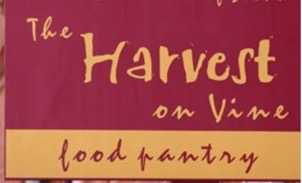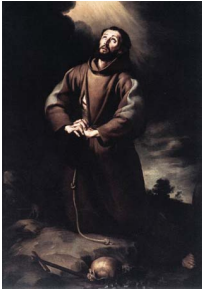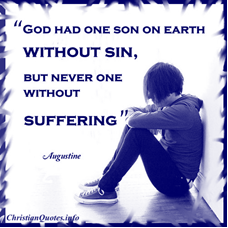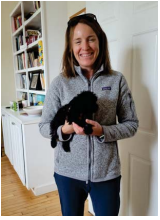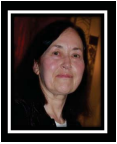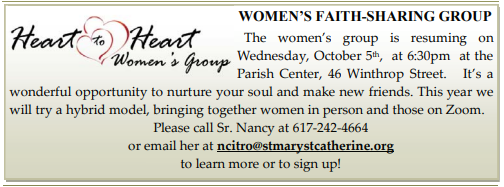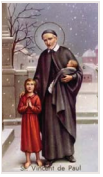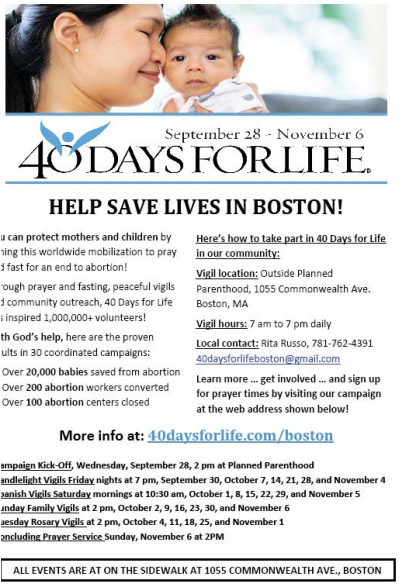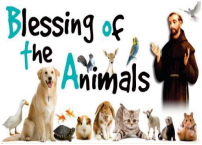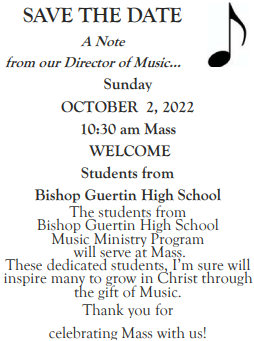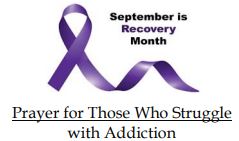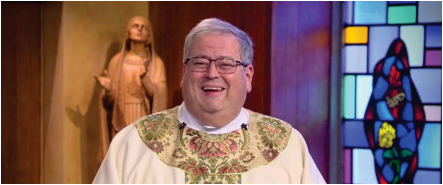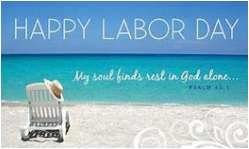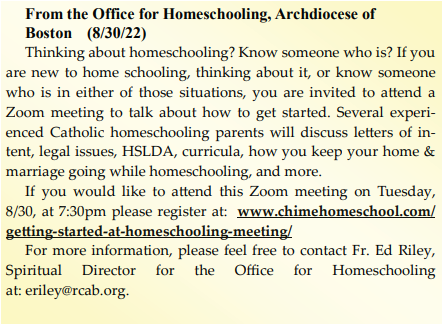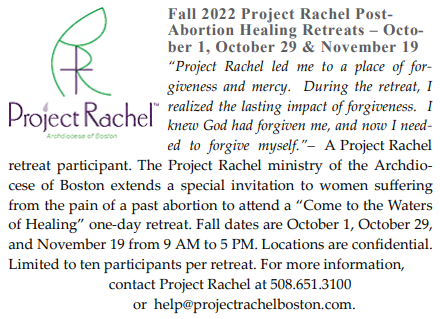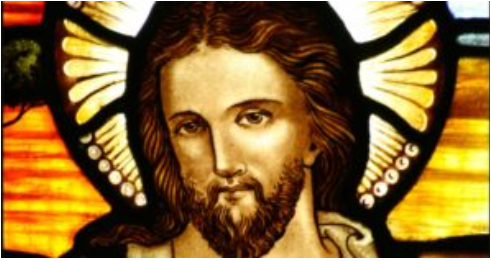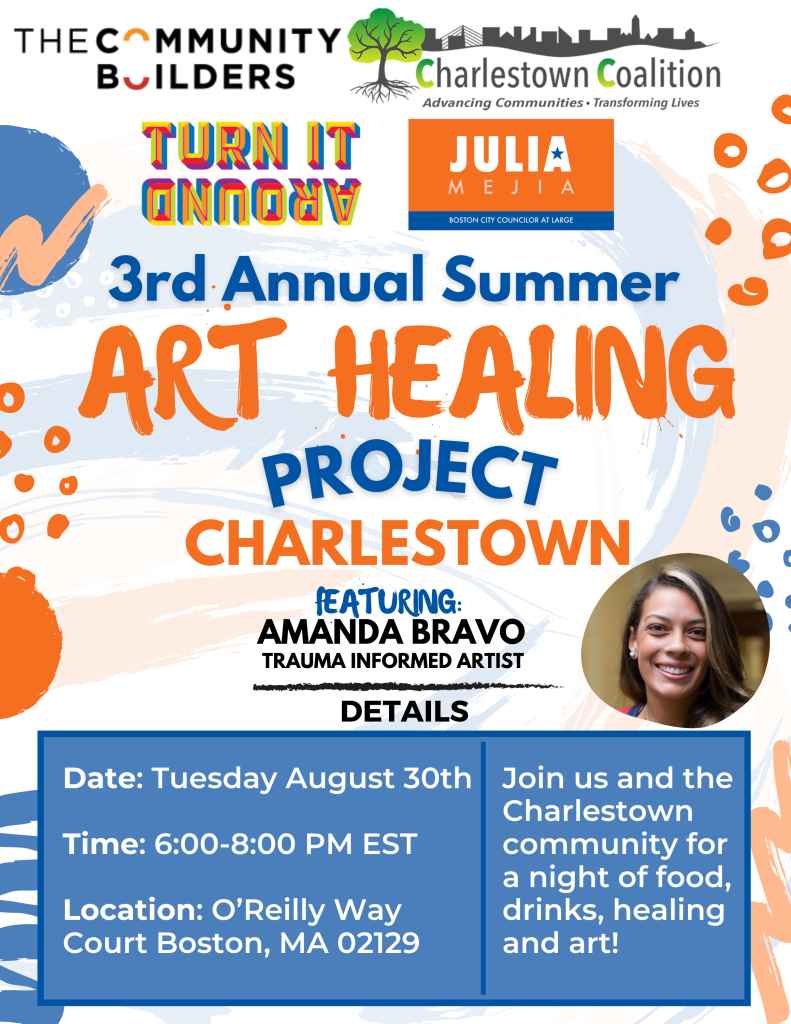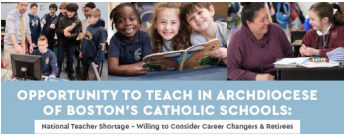Friends!
https://stmarystcatherine.org/wp-content/themes/osmosis/images/empty/thumbnail.jpg 150 150 Charlestown Catholic Collaborative Charlestown Catholic Collaborative https://stmarystcatherine.org/wp-content/themes/osmosis/images/empty/thumbnail.jpg
Friends,
Last weekend I paid tribute to the 60th anniversary of the Second Vatican Council (1962 – 65). This monumental meeting of the Bishops throughout the world was called by Pope John XXIII and had its opening session in October of 1962. The documents and teachings of this Council sent shockwaves throughout the Catholic Church.
Prior to the “Ecumenical” Council (because it also invited other Christian religions to participate) Catholic Church theology (understanding of God) and ecclesiology (understanding of the Church) was based primarily on the teachings of Vatican I (1870) and the Council of Trent (1545). As I mentioned in my homily, the 2nd Vatican Council truly made it possible for me to reconcile my humanity with my priesthood.
I spoke about 10 areas of the teachings of Vatican II that I believe, transformed the direction of the Catholic Church in a positive way. Some people requested that I make these available in the bulletin. I am privileged to do so. The 2nd Vatican Council is primarily responsible for these insights which changed my life and my ministry.
- Mass (the Eucharist) is now seen as a community celebration, not a private devotion. You are as important to this celebration as I am.
- God loves me unconditionally – I cannot earn or lose that love.
- No religion is favored by God over others. The Catholic Church and God are
not equal. As an example, the Council forced us to face our antisemitism. - The Bible is meant to be taken seriously but not always literally: we are encouraged to study the history and background of Scripture.
- It is our Baptism that gives us rights, responsibilities and privileges in the
Church, not being ordained a priest. - It is no longer the Church and world (we are not enemies) It is the Church IN
the world. The Church is a human institution and we must adopt with the
times. - The Sacraments were not always celebrated the way they are today. They evolve
as we better understand their purpose - Every Catholic person must form his/her own conscience through prayer, listening to the Church and learning from their own life experience. We then may
disagree with the institution and still be a good Catholic. - The Catholic Church must challenge each of us to take responsibility for those who are marginalized, ostracized and have the least opportunities among us. The poor are a priority.
- The history of the Church is meant to be studied and we have to face our history honestly. We have not always been a positive presence in the world and may
need to apologize and make reparations.
Because I embrace these beliefs I am a better human being, Christian and priest.
Imagine the challenges and opportunities that would face a Third Vatican Council.
Enjoy life!
Fr. Ron Coyne

REST IN PEACE, LILY, OUR DEAR
FORMER
“CO-PASTORAL ASSOCIATE”
AND FRIEND
For all of you who knew her, Lily, Fr. Ronan’s beautiful, black English Labrador Retriever, loyal sidekick
and friend, had her own special ministry in our Parish.
She brought great joy, laughter, and comfort to all and was very popular at Masses, Baptisms and, when invited by the family, at funerals. We all missed her when she began her retirement in the spring and wished her a long and happy retirement. Now we take leave of
this beautiful creature of God who will always be remembered by those who benefitted from her peaceful presence.
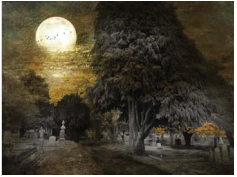
October 31 “All
Hallows Eve”
Halloween or Hallowe’en, also known as All Hallows’ Eve, or All Saints’ Eve, is a celebration observed in many countries on 31 October, the eve of the Western Christian feast of All Hallows’ Day. It begins the three-day observance of All hallow-tide, the time in the liturgical year dedicated to remembering the dead, including saints, martyrs, and all the faithful departed.
In the annual rhythm of the Church’s life of prayer and worship, the Solemnity of All Saints (Sunday, November 1) actually begins with Evening Prayer I in the Liturgy of the Hours on Saturday, October 31. We rejoice in those who celebrate the heavenly banquet with Jesus Christ and we recall the Church’s rich tradition of faith-filled stewards.
Keep “All Hallows Eve” from becoming “hollow” by celebrating the Christian connection to Halloween and the positive messages that stem from the holiday for the benefit of ourselves and the spiritual formation of our children. Celebrate Monday, October 31, as a Catholic heritage of faith.
ICSC bulletin 2021

